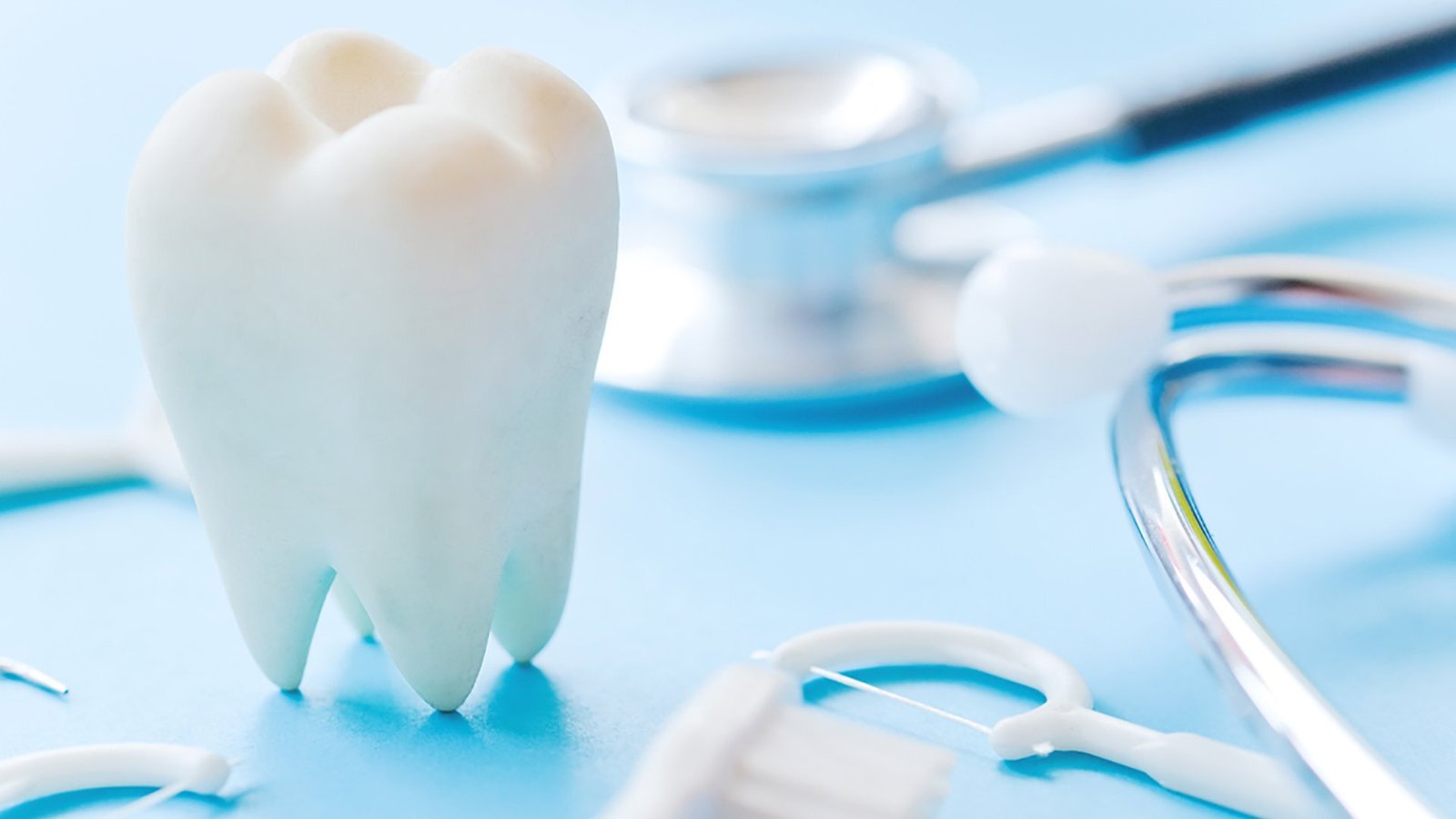Irritations, allergic reactions, and poor bonding are the common issues dentists deal with every day when using inappropriate dental adhesive material. Some adhesives won’t last long and cause crowns or dentures to loosen. It makes patients upset and even causes swelling or bad taste.
So, the dentist needs the best dental adhesive material to tackle all these dark sides. The best adhesive should hold all day and not hurt the mouth. It should be easy to put on and clean off. However, there are different types of adhesive material available. Which is best for my clinics?
I compiled this guide for you to cover the types, applications, and specifications of the best dental adhesive. So, close the other tabs and continue reading.
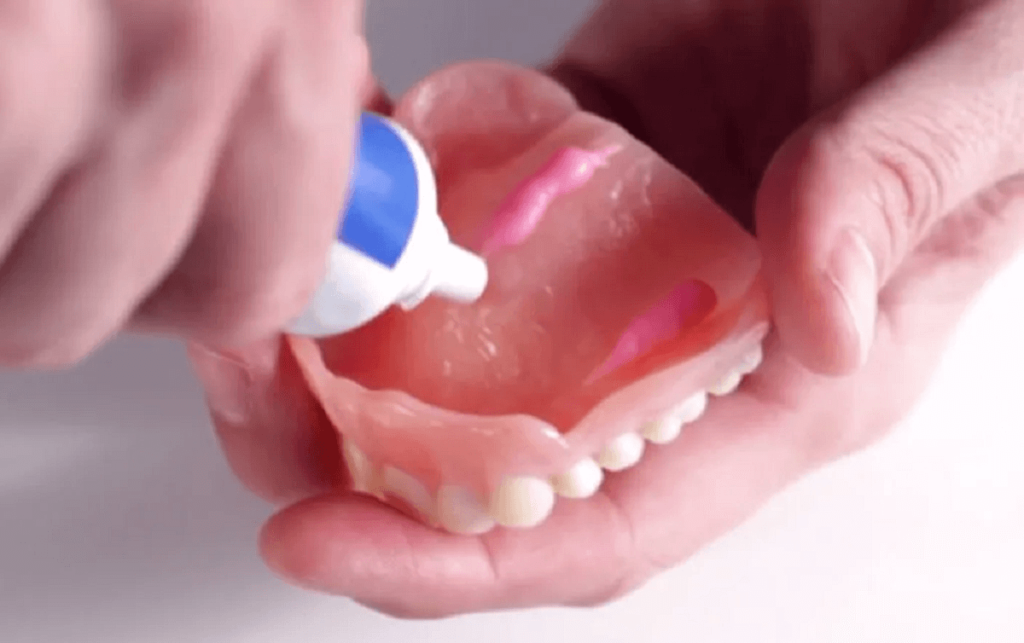
What is the Best Dental Adhesive and Why It Matters
The best dental adhesive is like glue for your teeth. Dentists use it to help things stay in place. It can hold dentures, crowns, or other dental parts so they don’t move or fall out. This helps people talk, eat, and smile without worry of falling restorations.
The working principle of dental adhesive is simple. The adhesive sticks to both the tooth and the denture or crown. It fills tiny spaces, so everything fits tight. The dental adhesive is safe and does not have a bad taste.
The patient feels good and comfortable when using it.
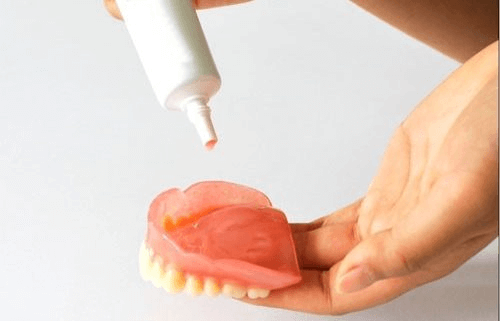
Different Types of Dental Adhesives (And Which One is for You?)
Here are the detailed explanations of different types of best dental adhesive for dentures.
– Denture Adhesives
Denture adhesives help dentures stay in place firmly. The dentist uses them so their fake teeth don’t move or fall.
There are three main kinds: creams, powders, and strips.
- Creams are soft and sticky. You squeeze them from a tube and put a small bit on the denture, then press it in your mouth. It holds strong and lasts many hours.
- Powders are dry. You shake a little powder on the denture and press it in your mouth. It feels lighter than cream. Powders are a good pick if you don’t like sticky things.
- Strips are pre-cut pieces. You lay one inside the denture and add a little water. Then place it in your mouth. The strips are very clean and easy.
– Temporary Dental Adhesives
They are commonly used for short fixes. Dentists use them when a crown or veneer falls off. You can also use them at home if you can’t get to the dentist fast. These adhesives hold things in place for a little while. They help stop pain or protect a tooth until you see a dentist.
– Orthodontic Adhesives
As a name mentioned, the orthodontic adhesives are used for braces. They hold the little metal brackets to your teeth. These glues are called dental cement. It is safe for teeth and does not hurt. The dentist places a small bit on each bracket, and then they stick it to your tooth. Dentists use special light to dry it. Once it’s hard, the bracket won’t move.
Top 5 Best Dental Adhesives in 2025
Here are the explanations of the 5 best dental adhesives in dental clinics or labs, mostly used for different purposes.
– Secure Denture Adhesive—Best for Strong Hold
Secure denture adhesive is a strongest dental adhesive and made for dentists who want a long, firm hold. It is not sticky like some creams. This one holds all day without moving. It is also waterproof, so it doesn’t wash away with drinks or food. You only need a small amount. Once you press your dentures in place, they stay put.
Pros:
- It provides a strong hold that lasts all day.
- The patient’s face has no smell or taste.
- It is zinc-free and safe for the mouth.
- It comes with a waterproof formula that avoids allergic reactions.
Cons:
- This best waterproof dental adhesive can feel stiff at first.

– Fixodent Plus Precision—Great for Beginners
Fixodent plus precision is the best dental adhesive for upper dentures and a good choice for people using denture glue for the first time. It comes in a small tube with a narrow tip. It is easy to apply. This glue has a soft mint taste, which some users like. It works well for both full and partial dentures. It helps stop food from getting under the denture too.
Pros:
- You can easily apply it with the narrow tip.
- It works well for first-time users.
- This material has a mild mint flavor.
- It stops food from slipping under dentures.
Cons:
- It can be hard to squeeze when the tube is low.
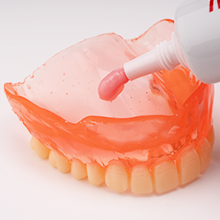
– Poligrip Super – Zinc-Free Champion
Poligrip super is a safe and strong dental adhesive. It is made without zinc, which is better for long-term use. Many dentists like it because it does not burn or hurt the gums. It also has a soft, clean feel in the mouth. You can use Poligrip for full or partial dentures. It is the best dental adhesive for loose dentures and helps dentures stay in place for many hours.
Pros:
- It is zinc-free and gentle on gums.
- This material is good for full and partial dentures.
- It keeps food from getting under.
- It provides a long-lasting grip.
Cons:
- You may feel sick if you use too much.
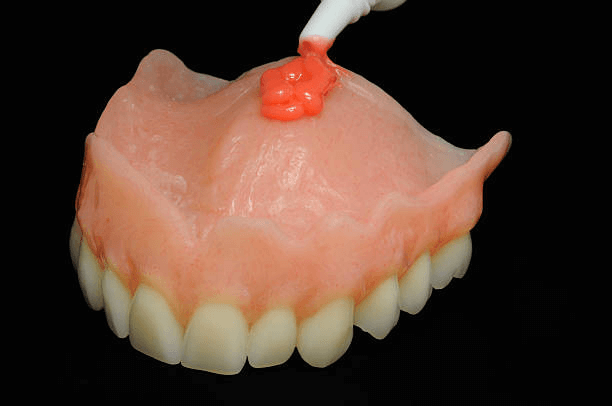
– Cushion Grip—For Gums That Need TLC
Cushion grip is a strongest dental adhesive and different from other denture glues. It is a soft, gel-like adhesive. It helps people with sore or tender gums. If your gums hurt or your dentures feel rough, this product can help. It is heat-activated, so it molds to your mouth for a comfy fit.
Pros:
- It provides soothing sore gums.
- It lasts for several days.
- This adhesive material has a soft, cushion-like feel.
- Helps dentures fit better.
Cons:
- The dentist takes time to learn how to properly apply.
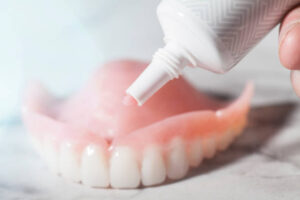
– Dentemp – Best Temporary Dental Cement
Dentemp is not for dentures. It’s for quick fixes like lost crowns, loose caps, or broken fillings. This glue hardens after a few minutes. It holds the crown or cap so it won’t move. It also helps with pain by covering the tooth.
Pros:
- It is great for quick, at-home fixes.
- It stops pain and covers the tooth.
- This adhesive is easy to apply without tools.
- It holds crowns and caps in place.
Cons:
- This adhesive is not made for long-term use.
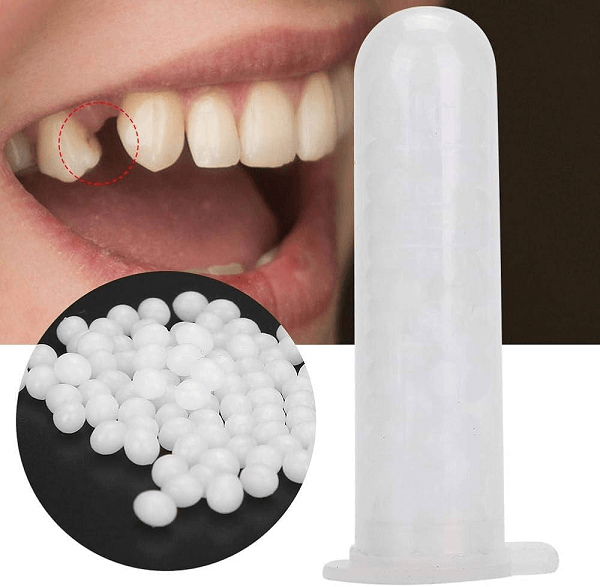
How to Choose the Best Dental Adhesive for Your Clinics?
It’s essential for you to keep a few factors in mind before choosing the best dental adhesive for your clinic. You want adhesive material that works well, feels good, and is safe for patients. Choose an adhesive that is strong and does not slip or wear off fast.
Next, check if it has safe ingredients. Some adhesives have zinc, which may cause problems if used too much. Aidite provides the safest and zinc-free adhesive for your dental labs. Their products are made for both doctor and patient comfort. Their adhesives bond fast and last long. They also work well with many tooth types and surfaces.
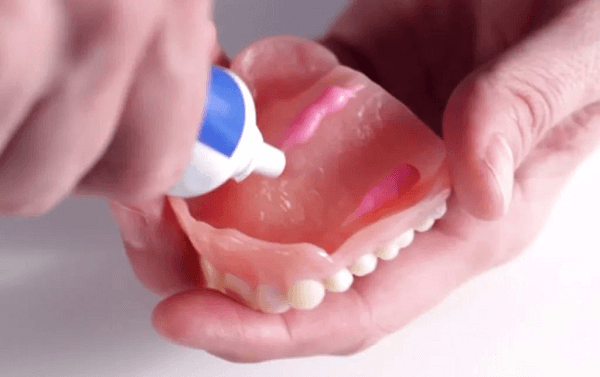
FAQS
Is adhesive safe for teeth?
Yes, dental adhesive is safe for teeth when used the right way. Most are made to be gentle on gums and enamel. It’s important for you to follow the directions on the label. If pain or swelling happens, stop using it and call your dentist.
How long does dental adhesive last?
Dental adhesive usually lasts 8 to 12 hours. Some strong types can hold even longer. It depends on the brand and how much you use. Eating and drinking may shorten the hold time.
Is dental glue permanent?
No, dental glue is not permanent. It’s made for short-term fixes or daily use. Only a dentist can apply permanent cement. Always see a pro for long-term care.
Final Thoughts
To sum up, the best dental adhesive is designed to provide support for dentures, crowns, and bridges. They also fill the gap between teeth tissues and dental models. Dentists also use the adhesive to place and secure the models firmly into place.
It’s important to choose a brand that provides a cost-effective dental adhesive solution. Also, make sure the adhesive is free from zinc and easy to apply. Aidite provides the best dental adhesive material that is fast and lasts long. They also work well with many tooth types and surfaces.
The final choice is up to you.



